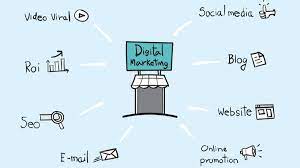
In the rapidly evolving eLearning landscape, content marketing has emerged as a crucial element for success. eLearning marketers face the unique challenge of creating content that is not only educational but also engaging and capable of standing out in a crowded digital marketplace. Crafting an effective content marketing strategy requires understanding your audience, delivering value, and using the right channels to reach potential learners.
Understanding Your Audience
The foundation of any successful content marketing strategy is a deep understanding of your target audience. For eLearning marketers, this means identifying the needs, preferences, and challenges faced by learners. This can involve analyzing demographic data, conducting surveys, or holding focus groups to gain insights into what potential customers are seeking from eLearning platforms.
Creating Valuable Content
Once you understand your audience’s needs, creating content that addresses those needs is vital. This can range from blog posts explaining complex subjects in simple terms to interactive quizzes that make learning fun. The key is to provide real value that helps users solve problems or advance their knowledge. By doing so, marketers can position their eLearning platform as a thought leader in the industry.
Utilizing SEO
Search Engine Optimization (SEO) is an essential tool for eLearning marketers to ensure that their content reaches the intended audience. By incorporating relevant keywords, optimizing meta descriptions, and creating quality backlinks, marketers can improve their eLearning platform’s visibility on search engines like Google.
Leveraging Social Media
Social media platforms are powerful tools for promoting eLearning content and engaging with potential customers. Marketers should take advantage of these channels to share valuable resources, join conversations about education topics, and showcase user testimonials.
Personalization and Automation
Personalization has become an expected component of online marketing. For eLearning marketers, this could mean personalized email campaigns that cater to the individual learner’s progress or interests. Moreover, automation tools can help streamline these processes and ensure timely communication with users.
Analyzing and Adapting
Finally, a successful content marketing strategy requires ongoing analysis and adaptation. By using analytics tools to monitor user engagement with content, eLearning marketers can understand what works and what doesn’t. They should be prepared to adjust their strategies based on this feedback to continually improve their approach.
Effective content marketing for eLearning isn’t just about selling a product; it’s about communicating ideas and building a community around learning. With the right strategy in place, eLearning marketers can achieve both these goals – growing their user base while contributing positively to the world of online education.
